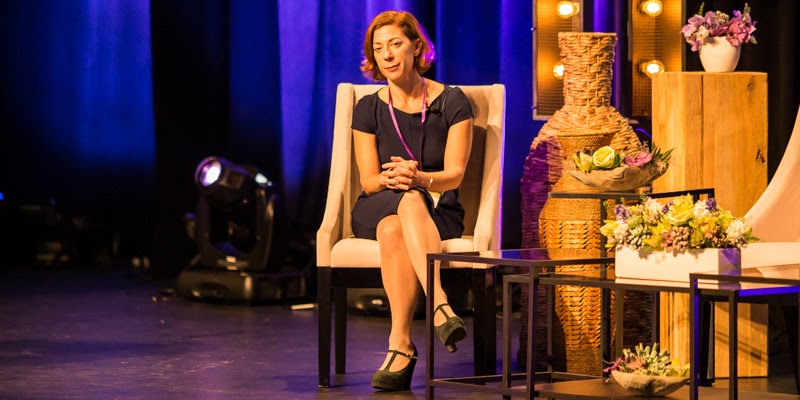An Interview With Dr. Lanie Francis
Dr. Lanie Francis is an expert of integrative medicine. She’s a board-certified hematologist and medical oncologist at the UPMC Hillman Cancer Center in Pittsburgh and the founder and director of the Wellness and Integrative Oncology Program. She uses an integrative approach to treat the body, mind and spirit of her patients undergoing traditional cancer treatments.
Through movement, touch, nutrition and mindfulness, Dr. Francis and her team of experts bring healing, peace and comfort to her patients. We were honored to speak to Dr. Francis via email and learn how she incorporates integrative practices into cancer treatments, the benefits of a holistic approach to her patients and how these practices, such as yoga, massage and proper nutrition, can improve the quality of anyone’s life.
How would you describe integrative medicine as you use it in conjunction with cancer treatments?
I would start by defining terms that are commonly used interchangeably, but are actually quite distinct. “Alternative” refers to a choice of intervention instead of conventional medical care. “Complementary” refers to a choice of intervention parallel to conventional medical care. “Integrative” refers to interventions woven into conventional medical care. We define integrative oncology at UPMC as managing the mind, body and spirit using the modalities of movement, touch, nutrition and mindfulness in the context of conventional cancer care.
What would you tell someone who is skeptical of integrative practices like yoga or aromatherapy as part of traditional treatment? Are there any common misconceptions?
I am not focused on convincing anyone of integrative practices. Rather I see myself as a Western-trained physician and oncologist with an open and curious mind. I provide the evidence to patients (and other health care providers) as it stands for integrative practices like yoga and aromatherapy, but also discuss the larger benefits of holistic care of mind, body and spirit. These benefits include an element of control, gratitude and self-advocacy in addition to the more concrete benefits of breathwork, physical activity and whole food nutrition.
A common misconception is that one size fits all. Our medical training and research paradigm is to focus on groups of people and statistics – all very important. However, there is more of an individual focus in integrative medicine.
Do you think integrative medicine is indicative of a larger trend in medicine to treat mind, body and soul?
Absolutely. On one hand, there is a movement toward self-care and mindful attention, while on the other hand there is a great deal of interest in how prevention may drive health care outcomes and lower costs. Integrative medicine fits very nicely into both of these larger trends.
Is there any evidence that integrative methods like yoga, aromatherapy, Reiki or massage can prevent disease?
This is an evolving area of research. For example, we know that mindfulness improves physiologic metrics like blood pressure, and we know that physical exercise improves survival and can prevent certain types of disease recurrence, including certain cancers. We also know that yoga improves fatigue and aromatherapy and massage improve quality of life. Research tends to focus on narrow outcomes in order to prevent bias or confounding factors. I believe that the more useful research will be to look at symptom and disease clusters with a comprehensive holistic approach and correlate it with quality of life and cost savings. This research wave is coming. In fact, at UPMC and the University of Pittsburgh Cancer Institute (UPCI), we are sponsoring just such a study through our Wellness and Integrative Oncology Program.
What results have you seen in your patients who incorporate these practices into their treatments?
We see improved well-being and quality of life, as well as symptom improvements in pain, fatigue and neuropathy, to name a few. We also see intense gratitude for our approach to patients as people. We are tracking all of our outcomes now through our electronic medical record, so we have the data to show to insurance companies that our approach – comprehensive, physician-guided integrative care in a safe and supervised setting – needs to be validated by some level of insurance reimbursement.

